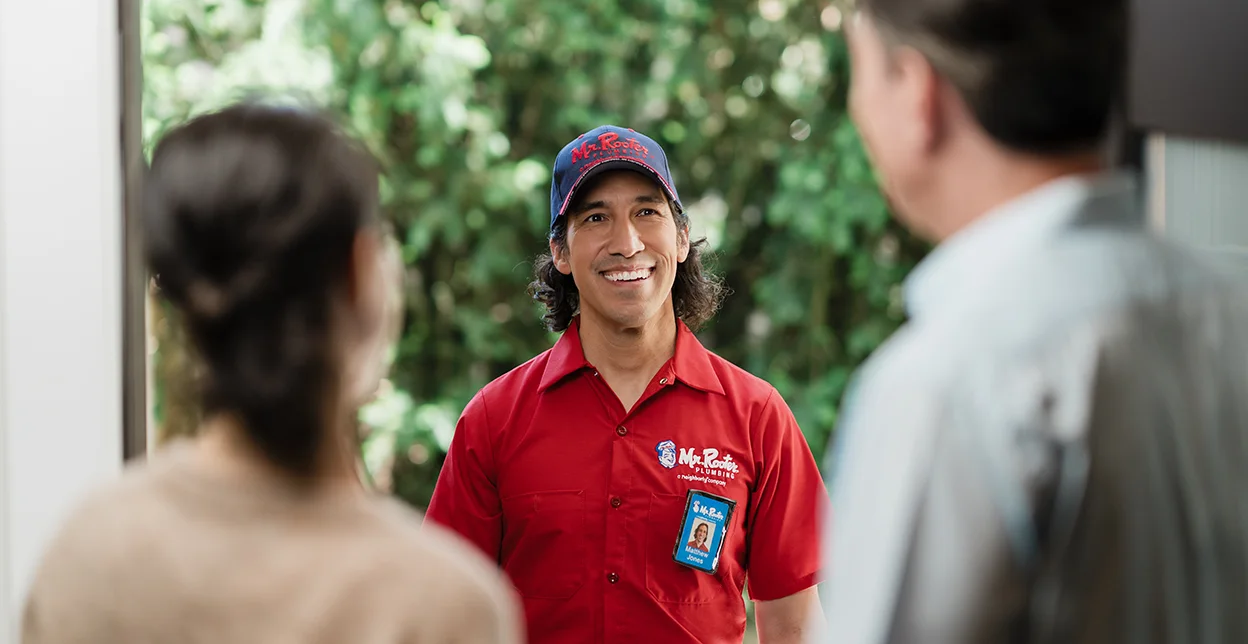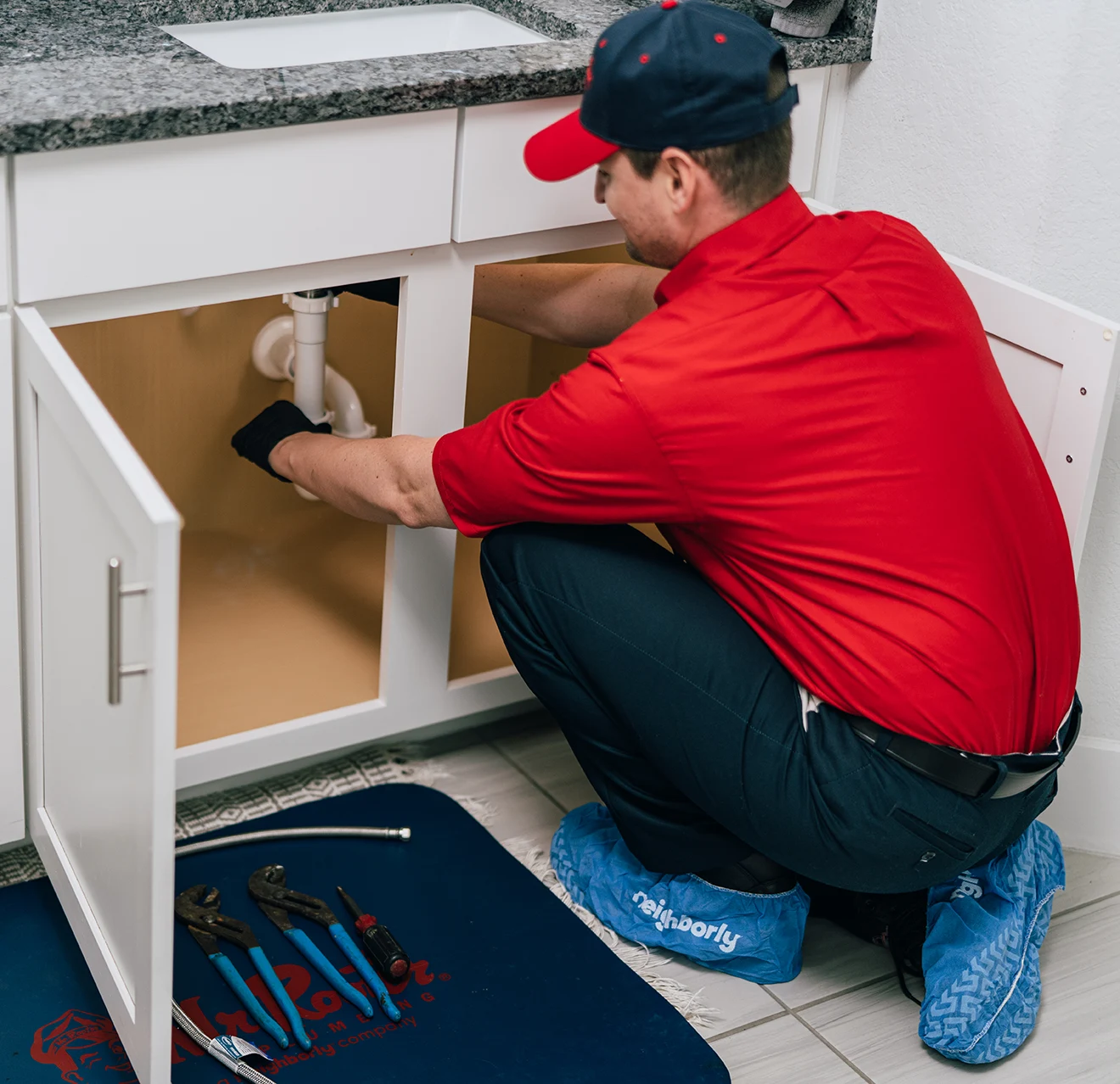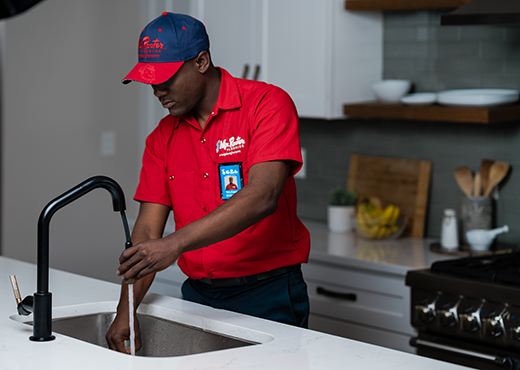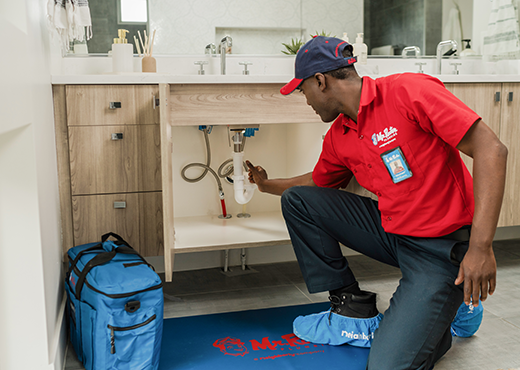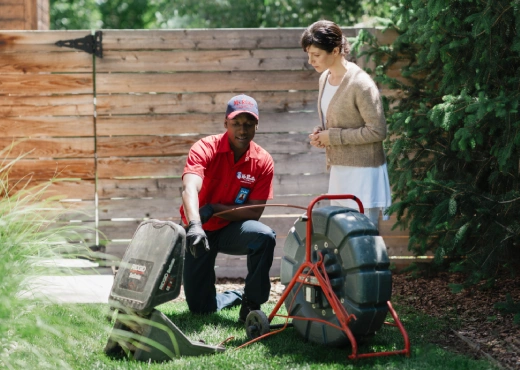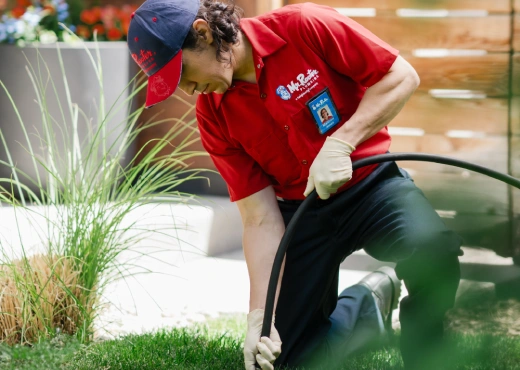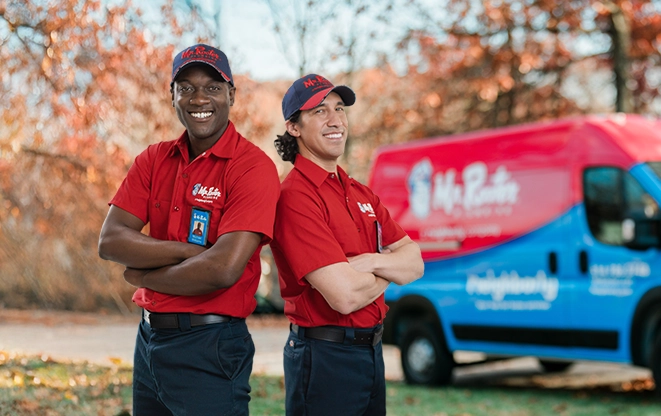You might be asking, “How will my sewer line get repaired if it’s underground?”. Back in the day, the only way to sewer line pipes was by digging a trench around the pipe. Nowadays, we utilize trenchless methods for repairing sewer lines to help you avoid major yard excavation.
The first step to your Branson sewer line repair or replacement job is performing a thorough inspection of the pipe. We’ll perform various tests to determine the problem, so we know what we’re fixing. If it’s a clog, chances are we can clear that clog with a heavy-duty drain snake or a hydro-jetting service.
If your sewer line is damaged, we will try using either of these trenchless repair methods:
- Pipe Relining. Pipe relining repairs damaged sewer lines by inserting a flexible lining coated with epoxy resin into the existing pipe. When inflated, the resin hardens to create a durable inner layer, sealing cracks and weak points. This essentially creates a new pipe within the old pipe. This method is recommended for minor sewer line damage.
- Pipe Bursting. A bursting head is inserted into the old pipe, breaking it apart while simultaneously pulling the new pipe in its place. This method is ideal for replacing pipes with extensive damage or deterioration. However, it still reduces the need for traditional excavation and minimizes disruption to your landscape.
Sometimes, digging a trench is necessary, but this will be our last resort. Once we’ve inspected your sewer line and know what's going on, we’ll review your repair or replacement options.
Need sewer line repair in Branson, MO? Request your service online or call us today. We’ll be over ASAP to take a look.
